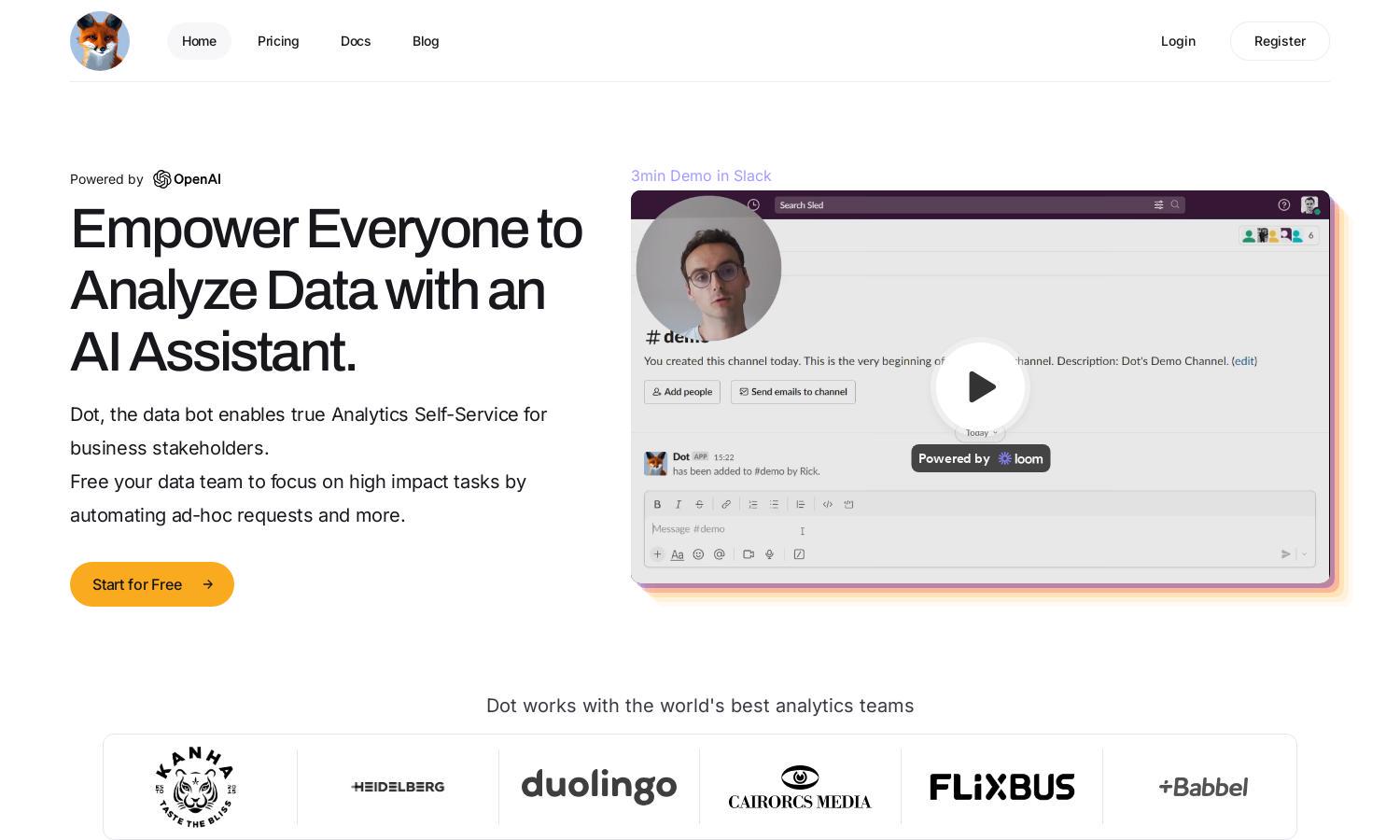Dot

About Dot
Dot is an innovative AI assistant designed for data-driven organizations, allowing users to interact with their data warehouse through natural language. By automating data queries and generating insights instantly, Dot empowers business stakeholders while streamlining the responsibilities of data teams. It's a game-changer for analytics self-service.
Dot offers a free tier as well as advanced pricing plans tailored for enterprise needs. Each upgraded plan includes enhanced features such as priority support and expanded integration capabilities, providing additional value for businesses aiming for in-depth analytics and seamless collaboration, making Dot a wise investment.
The user interface of Dot is sleek and easy to navigate, promoting a smooth experience for users. With intuitive design elements and user-friendly features, Dot ensures that data interactions are straightforward, enabling both technical and non-technical users to derive insights seamlessly from their data.
How Dot works
To get started with Dot, users simply sign up and integrate their existing data systems through easy no-code connections. Once onboarded, they can ask questions about their data in natural language. Dot quickly analyzes requests, delivering fast insights and enabling users to make data-driven decisions without delays.
Key Features for Dot
Natural Language Processing
Dot's natural language processing feature allows users to pose data-related questions in simple language. This intuitive interaction transforms complex queries into straightforward requests, enabling users to receive swift and accurate insights without needing technical expertise, truly enhancing the data analysis experience.
Instant Insights
With Dot's instant insights feature, data teams can answer questions in seconds rather than days. By analyzing vast datasets promptly, Dot enhances decision-making processes and boosts efficiency, allowing organizations to stay agile and responsive in today’s fast-paced business environment.
No-Code Integrations
Dot offers no-code integrations with an array of popular databases and tools, simplifying connectivity and data management. This feature enables users to harness data insights quickly without requiring technical resources, ensuring that teams can focus on using data rather than managing it.








